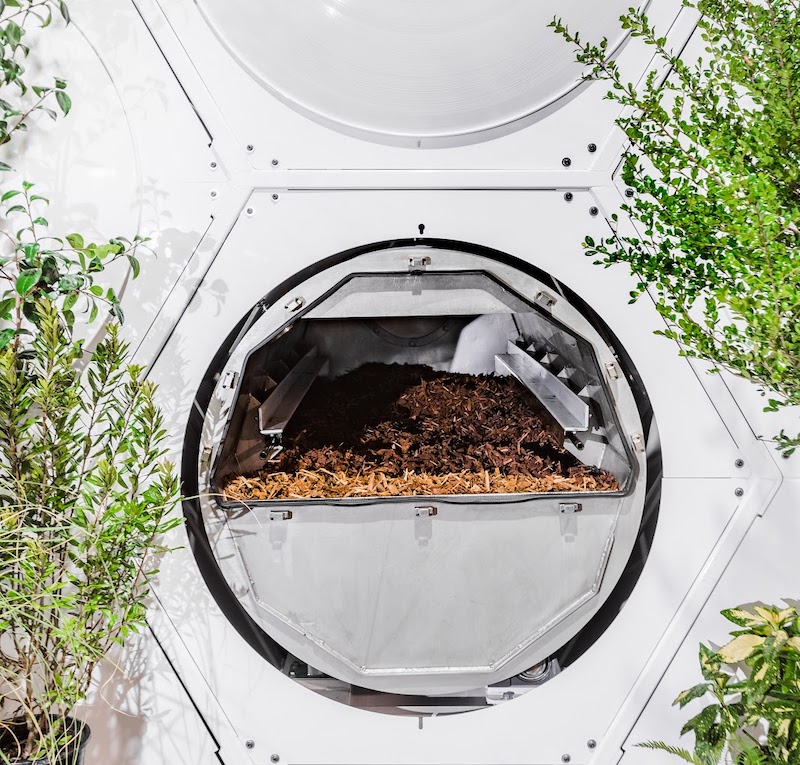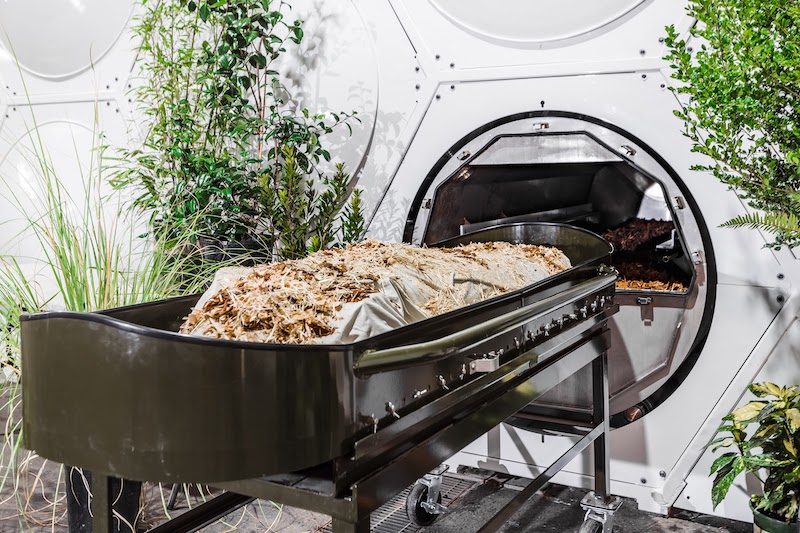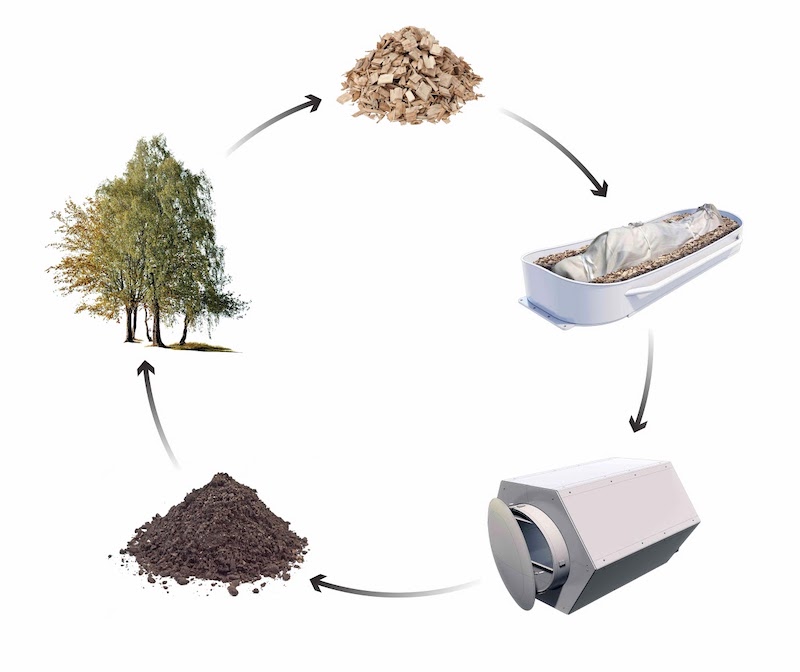Human composting, also known as natural organic reduction (NOR), is an alternative to burial or cremation that’s currently available in some parts of the US. Full Circle Funerals has been supporting Yorkshire lawyer Ian, who’s arranged for his body to be composted, when he dies. Here he shares with us why he chose this natural approach, and how he discussed his choices with his family.
When did you start to think about the type of funeral you wanted?
Following the death of a neighbour and serious illness in my family, when I turned 70 my own mortality suddenly hit me in the face, and I began to dwell on my death. It made me feel rather depressed, if I’m honest, but it also led me to think about what would happen to my body after I died. I’ve been to a few cremations and was unimpressed, at some, by the fact that they seemed to be no more than a conveyor belt type of service, which was rather impersonal, in my experience, with the Celebrant clearly not knowing the person at all. That said, I’ve attended two, beautiful, cremation services, in Churches, one, in fact, the neighbour’s, arranged by Full Circle, which is why I made contact with them. I also have a bit of a strange phobia of being 6ft under.


Photo Credit: Recompose
What led you to consider human composting as an option?
I read an article about human composting, in the Guardian, a couple of years ago, to which I was immediately attracted, so I was aware of this as an alternative. I’m quite environmentally aware, and like to be forward thinking, and I was an early adopter of the electric car, for example. Despite this, and the fact that I’m known for being a bit of a non-conformist, when I mentioned human composting to my family, they thought I was absolutely bonkers!


Did you consider any other alternatives?
I looked into human composting in more detail and also looked at other processes such as aquamation, which Archbishop Desmond Tutu had, but, although the equipment is made in Leeds, this isn’t available in the UK, just yet. There’s a freeze-drying/shattering process too, I discovered, but I don’t think that’s got off the ground. I was interested in the Sikh tradition of open pyre funerals, which again involves a natural process, above ground. Following a High Court case that permitted them on religious reasons, I understand they’re now available in Northumbria, but apparently only for Sikhs. My wife and I visited two natural burial grounds, in Yorkshire, but these still involve being buried, somewhat deep underground, which I don’t want.


Photo Credit: Recompose
How did you go about researching and planning for natural organic reduction?
I’m using a company called Recompose in Seattle, WA, USA. My wife did say that she’d prefer my remains to stay in Yorkshire, but we discussed it, and I explained that a traditional funeral service isn’t something I want, as an agnostic. I want to be neither buried, nor cremated, and prefer for my remains to be returned back to nature, as soil, on the surface of the Planet, in a beautiful landscape, and I don’t want anyone to feel any obligation to make a pilgrimage to visit and tend a grave, whatsoever.
The environmental impact is quite important to me too. Cremations use a lot of natural gas, and release a lot of CO2 etc, and cemeteries use valuable land, that’s in short supply, that could be used for other purposes. I had to confirm that my body could be transported to the US without being embalmed, as that would mean that it couldn’t be composted. I’m pleased to say that this is possible, thanks to David Billington’s researches. The only aspect with a carbon footprint is the flight, but I’ve kind of justified that to myself in the knowledge that the flight would be going anyway, and it won’t be being arranged just for me. By being a relatively early adopter of this process, in due course, I hope that in the future it will be available more widely, particularly in the UK, so that there’s no need to travel overseas.


How does human composting work?
The whole process is very natural and beautiful. My body will be laid in a cradle within a honeycomb structure above ground and be covered with plant material, including alfalfa, wood chips and straw. I’ve chosen some of my favourite music to be played during my “laying in”. Over the next 30 days, microbes that occur naturally in our bodies and the environment will transform my body into nutrient-dense soil. The whole process is very in tune with people and nature. The soil can be returned to relatives if they live in the US, but I’ve chosen for mine to be used in a mountain re-wilding project near Seattle.


Image Credit: Olson Kundig
How have you found the process of choosing and setting out your funeral wishes?
It’s been an extremely positive process. I don’t have to worry any more about what will happen to my body after I die, so I’ve no fear of dying now, and it’s really helped me to know what is going to happen in the end, and, until then, I intend to live life to the fullest.
David, at Full Circle, was very friendly, understood my concerns and phobias, helpfully listened to my needs, did the necessary research, and liaised with Recompose, who are also great to work with.
I’ve signed up to Recompose’s “Precompose” plan, where I’m locked in at a fixed price, and pay a monthly instalment, by a direct debit, from my credit card. When I die, Full Circle will set the wheels in motion, in the UK, and send me to Recompose, who will take over from there. Of course, there’ll be additional fees to pay Full Circle, and I set aside a monthly sum, in a savings account specifically for that, so my wife won’t have to worry about finding that money when I go.
The NOR process is now legal in Washington State, California, Colorado and New York State (the most recent adopter). Who knows, legislation permitting, Recompose may one day open a Branch here. My Plan is transferrable to any of their locations, but, at present, I’m staying with their HQ in Seattle, a city I’ve visited, many years ago, and my son lives not too far away in Canada.


